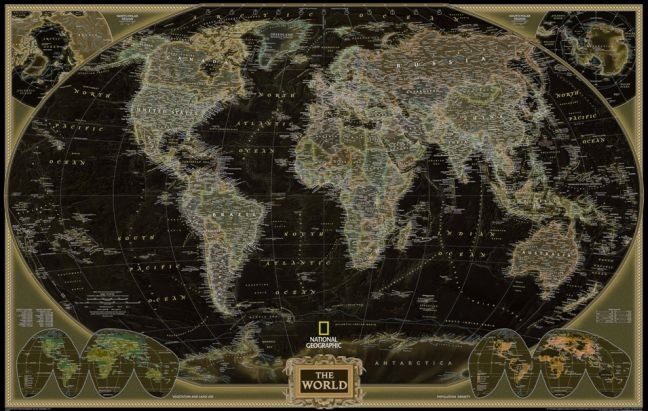Europe is entering a shaky period in its history in which almost nothing seems certain anymore. But, as with a future financial crisis, we can be sure that people and nature and buildings and infrastructure and institutions remain, which are the essence of our existence and our communities.
There is much talk about the Europe and the world we live in, but little of it contributes to a good understanding and shows ways to solve our problems. Politicians prefer to defend or attack the existing order and many journalists and social scientists simply echo their opinions (especially of those who defend the existing order). Conformism is widespread in the media, universities, ministries and large corporations.
I like to read descriptions of realities and thought-provoking analyses of them. I also like to read analyses I do not (fully) agree with, and when I agree, I often wonder if there is reason to disagree.
The following analysis is stimulating. It is written by Greek journalist Dimitris Konstantakopoulos. You can read the full article here,
End of Regime in Europe! I highlight some of his thoughts below.
About Brexit and the European Union
The European Union, at least as it stands now and with the policies and
the arrogance it is producing, is simply unacceptable not just by
British, but by a clear majority of all European citizens. The
Maastricht system, institutional incarnation of neoliberalism (and
atlanticism), imposed in Western Europe in the wake, and under the
enormous impact of the collapse of “Soviet socialism”, and also of the
Mitterrand (and the British Left) defeat and capitulation and of the
German reunification, as it was executed, proved to be a socially
regressive, economically inefficient, politically oligarchic,
antidemocratic structure.
The final political blow to the legitimacy of the European Union was
inflicted last year [2015], when all the world saw the way Berlin and Brussels
crashed Greece, a member of the European Union.
Greeks were too weak to succeed in their rebellion. British were too
strong to accept such a Union. It was History, not the Left or the
Right, which put European revolt on the order of the day. European Left
proved in 2015 too hesitating, too weak, too unwilling to become the
leader of the Revolt till the end. A part of the European Right was
there to fill the vacuum, at least at that stage. And it did it.
By voting the way they voted, British did the same that did, before
them, the citizens of Cyprus, of France, of Netherlands, of Ireland, of
Greece, every time they had the opportunity. They rejected massively the
policies produced and imposed by the elites, both national and European
ones (the two more and more indistinguishable), in spite of the
enormous terror and propaganda campaigns to do the opposite.
About today's revolts in Europe
It is not a coincidence, that those revolts are happening mainly in
nations which have, more or less, a strong national tradition. Cypriots
have done one of the first anti-colonial revolutions after the 2
nd
World War, in spite of being a handful of people opposing an Empire. In
the administration councils of French multinationals they speak now
English, still France remains the country of the Marseillaise and it has
a tendency to remember it, every time it feels the need. By the way,
the first communist revolution in modern European history, the Paris
commune, begun because French bourgeoisie wanted to handle the capital
to the Germans. Netherlands is one of the birthplaces of European
freedom, the country of Spinoza. Ireland as a country has been defined
by the revolt against foreign rule. Greeks have mounted a ferocious
resistance against Hitler, when most European nations had compromised
with him. They inflicted in 1940-41 the first military defeat in Europe
to the Axis and their subsequent resistance has provided to the Soviets
and the “General Winter” precious time, while it disturbed seriously
Rommel’ s logistics in Africa.
About the collapse of the neoliberal EU
Neoliberals have been able to control nearly all the media and political
landscape, intellectuals and the public opinion. They were even capable
of erasing mush of History from the program of western universities.
You can be a graduated economist nowadays, but ignore completely Keynes
or Galbraith...
By controlling everything, they fell victim of their success, believing finally blindly their own propaganda.
In the environment of prosperity of the ’90s, all that seemed extremely
strong and successful. But as both the middle classes and more oppressed
social strata felt the pressure of the economic crisis and then of the
financial crisis of 2008, the material conditions for neoliberal
hegemony begun to collapse and with them the political and ideological
foundations of the European Union.
About the solution
For various reasons, the simple return of Europe to its nation-states,
cannot be the solution. And even if British, French and Germans can as a
minimum think and try it, nobody else can seriously believe to such a
perspective. This is why, the defense of the nation-states and of what
remains of democracy in their context is absolutely necessary, but in
the same time is impossible without the emergence of a new project,
socio-economic and international, able to replace the collapsing
neoliberal Order.







